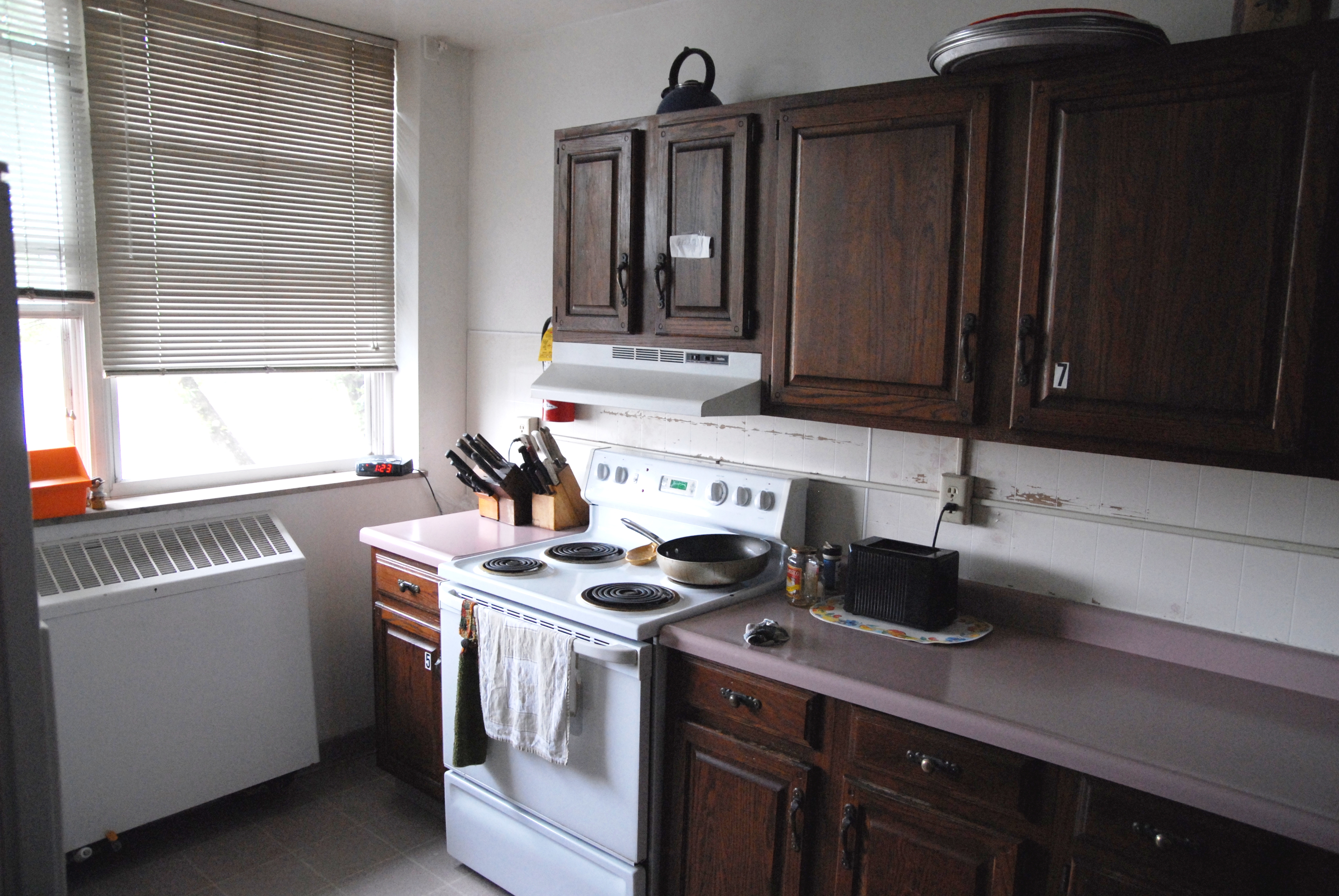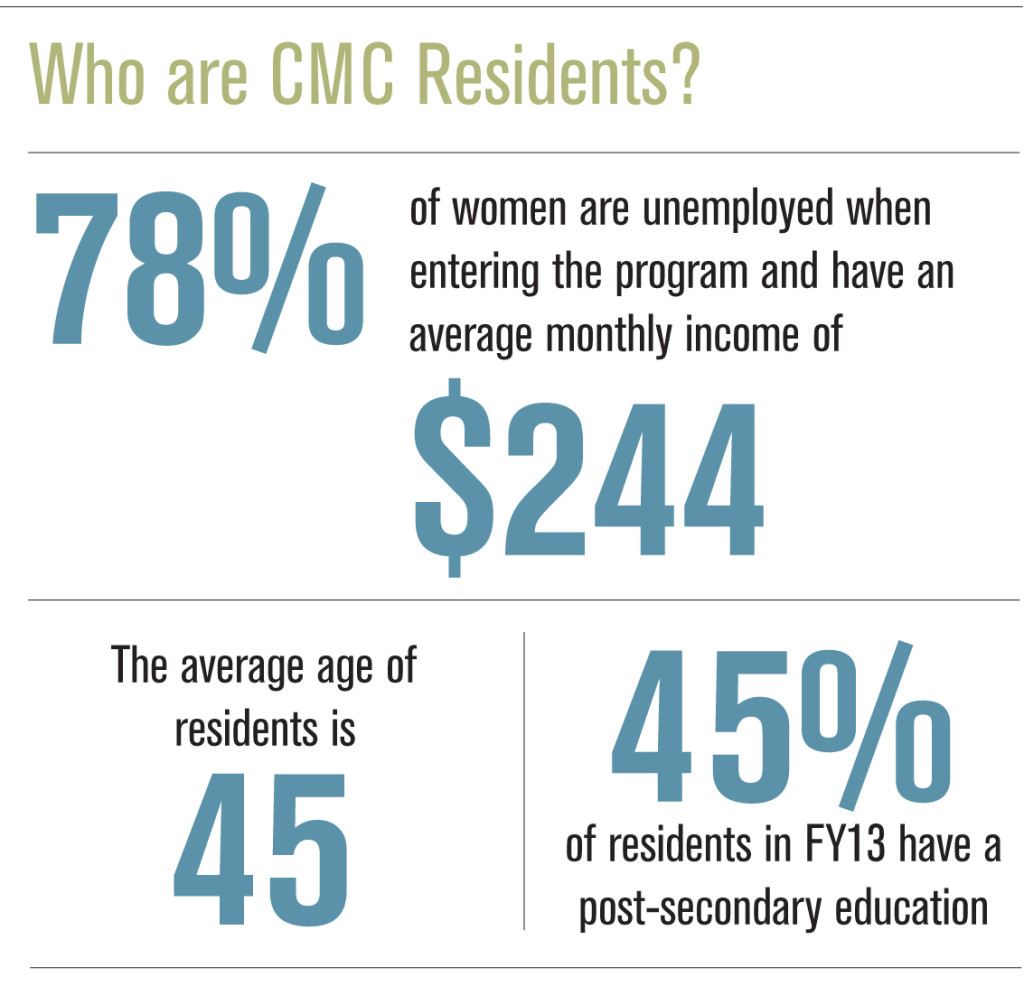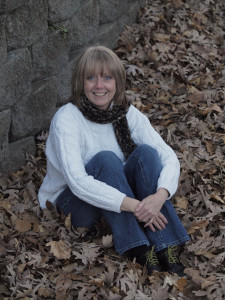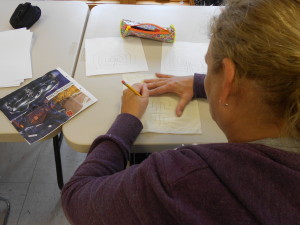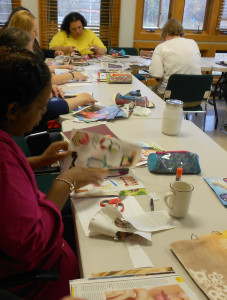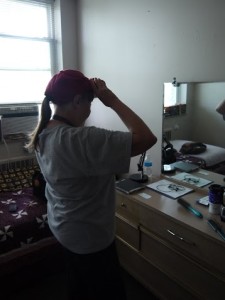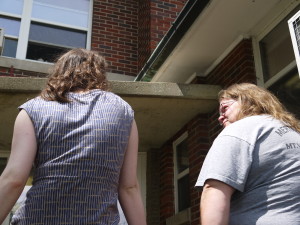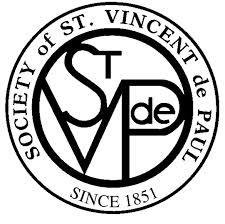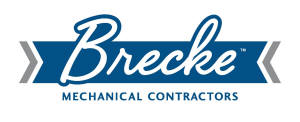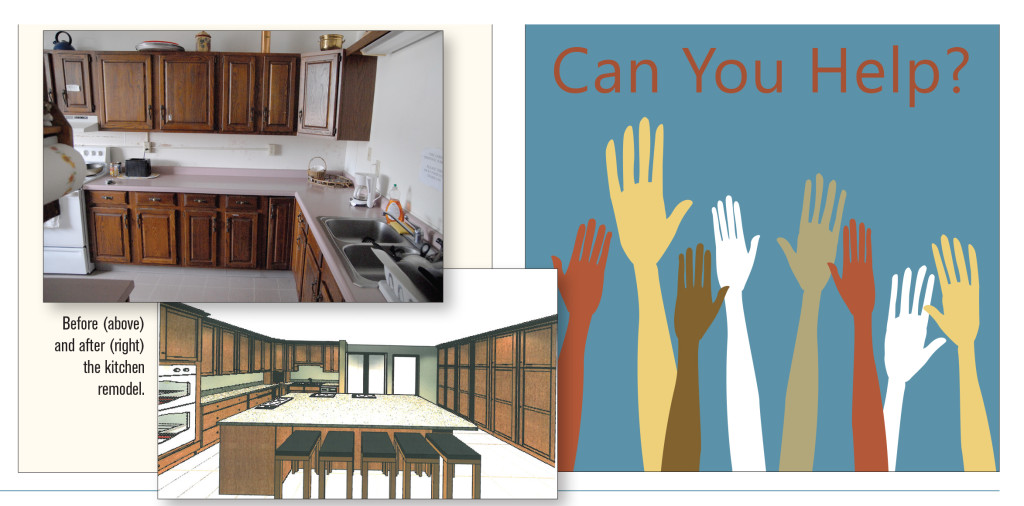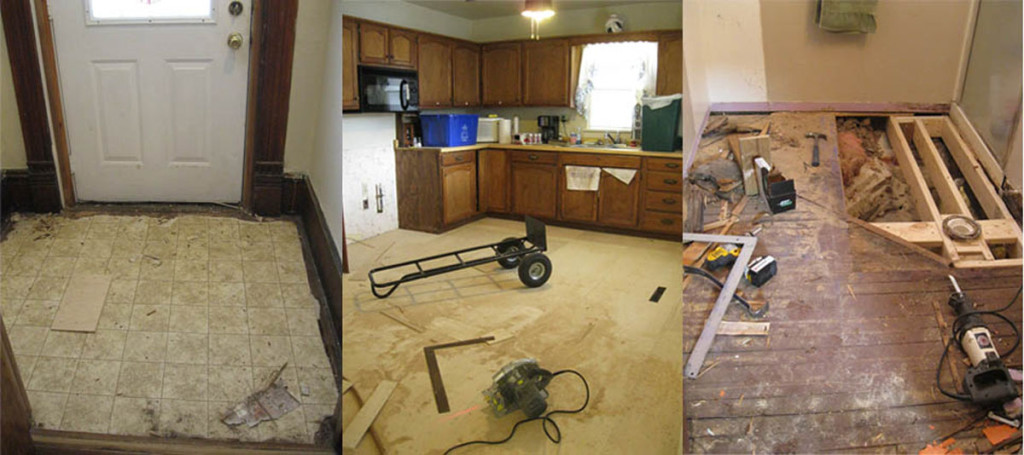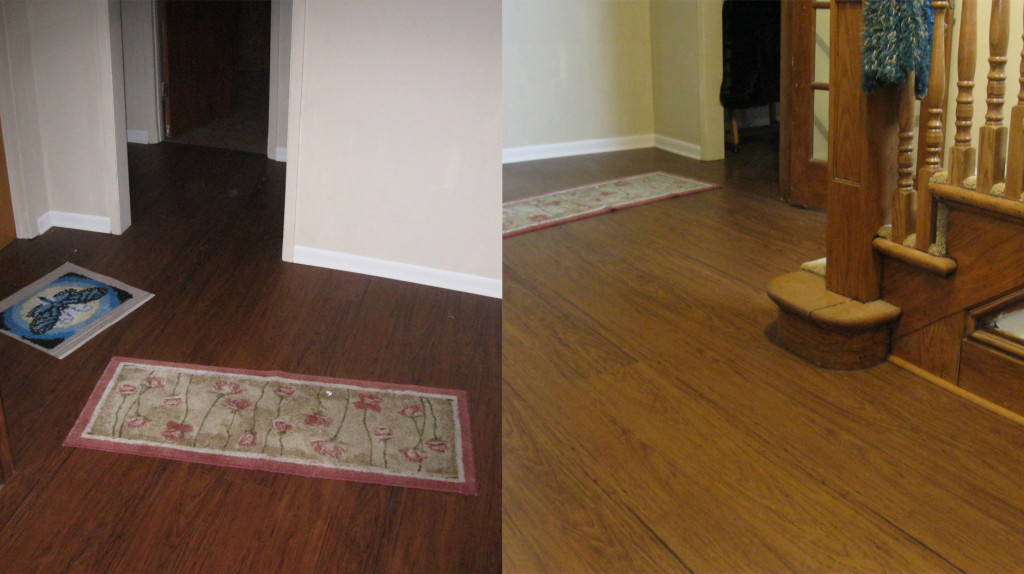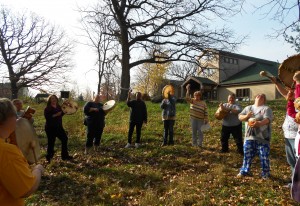
Left: Garden produce is first brought to the CMC teaching kitchen each Monday for THP residents. Right: Food that remains after the residents’ Monday night class is placed on the food pantry shelves in the CMC lobby.
The Gateways Garden, an outdoor space with raised garden beds developed with the help of many community partners and managed by the Catherine McAuley Center’s Transitional Housing Program (THP), now has fresh produce ready for harvest!
Many of the fruits and vegetables are used for the THP residents’ skill-building classes, where they learn how to can and how to cook healthy meals, but the garden yields more crops than can be used by THP participants alone. In the generous spirit of Catherine McAuley (foundress of the Sisters of Mercy), residents give the extra produce to CMC’s food pantry that many students in CMC’s Adult Basic Education Program access on a weekly basis.
Anne Dugger, Immigrant and Refugee Coordinator, explains that this fresh food is significant to students, “first and foremost for the health benefits. Right now produce is hard to come by if you don’t have a lot of money. It also feels good to know that the CMC community cares.”
CMC is blessed with an incredible and supportive community made up of volunteers, financial supporters, and corporate sponsors, but to see a spirit of giving among our clients is to see CMC’s vision of empowering individuals in action.
CMC also accepts fruits and vegetables from home gardens. If you or someone you know has extra produce, please consider donating it to the Catherine McAuley Center to provide a healthy meal for a student or resident.

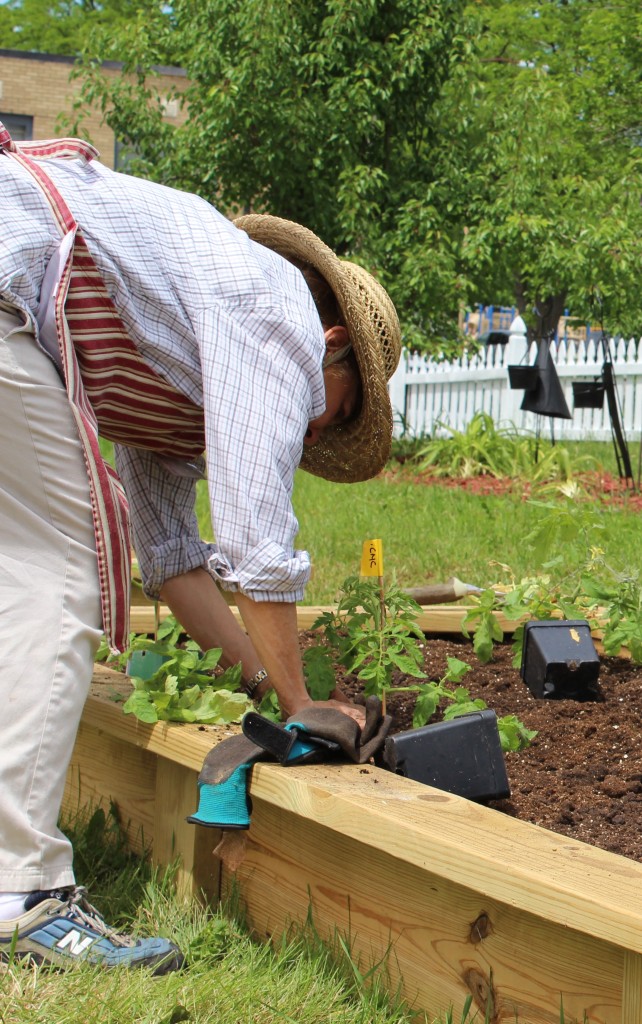 Four years ago, the Catherine McAuley Center adopted Gateway Garden, a plot owned by the Wellington Heights Neighborhood Association. Designed to “create opportunities for the women to learn about fresh foods,” according to Jennifer Tibbetts, Transitional Housing Program Manager, the garden has provided residents with fresh fruit, vegetables and herbs. This year, thanks to a grant from Soroptimists of Cedar Rapids/Marion,the Center will complete the largest scale effort yet to improve the garden’s function and accessibility.
Four years ago, the Catherine McAuley Center adopted Gateway Garden, a plot owned by the Wellington Heights Neighborhood Association. Designed to “create opportunities for the women to learn about fresh foods,” according to Jennifer Tibbetts, Transitional Housing Program Manager, the garden has provided residents with fresh fruit, vegetables and herbs. This year, thanks to a grant from Soroptimists of Cedar Rapids/Marion,the Center will complete the largest scale effort yet to improve the garden’s function and accessibility.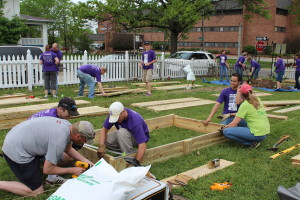 Karen Vlasek, a Soroptimist member, says that although the monetary donation is paramount, this project “couldn’t happen without community involvement.”
Karen Vlasek, a Soroptimist member, says that although the monetary donation is paramount, this project “couldn’t happen without community involvement.”